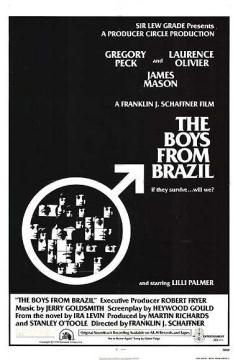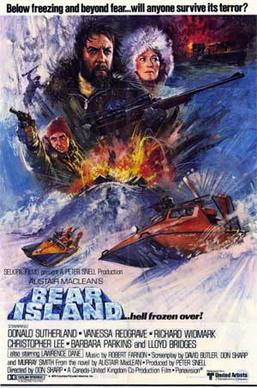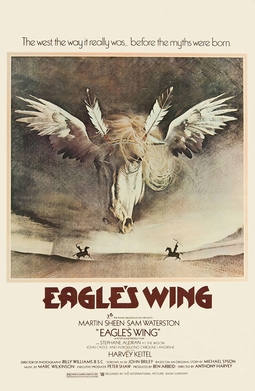Related Research Articles

The Boys from Brazil is a 1978 thriller film directed by Franklin J. Schaffner. It stars Gregory Peck and Laurence Olivier, and features James Mason, Lilli Palmer, Uta Hagen, Anne Meara, Denholm Elliott, and Steve Guttenberg in supporting roles. The film is a British-American co-production, based on the 1976 novel of the same title by Ira Levin. It was nominated for three Academy Awards.

The Bounty is a 1984 British epic action adventure swashbuckler historical psychological thriller drama film directed by Roger Donaldson. It depicts the voyage and mutiny of HMS Bounty, with Robert Bolt's screenplay adapting the 1972 book Captain Bligh and Mr Christian by Richard Hough. It stars Mel Gibson as Fletcher Christian and Anthony Hopkins as William Bligh, with supporting roles played by Laurence Olivier, Daniel Day-Lewis, Liam Neeson, Bernard Hill and Edward Fox.

The Rank Organisation was a British entertainment conglomerate founded by industrialist J. Arthur Rank in April 1937, Rank also served as the company chairman. It quickly became the largest and most vertically integrated film company in the United Kingdom, owning production, distribution, and exhibition facilities as well as manufacturing projection equipment and chairs. It also diversified into the manufacture of radios, TVs and photocopiers. The company name lasted until February 1996, when the name and some of the remaining assets were absorbed into the newly structured Rank Group plc. The company itself became a wholly owned subsidiary of Xerox and was renamed XRO Limited in 1997.
Sir John Woolf and his brother James Woolf were British film producers. John and James founded the production companies Romulus Films and Remus Films, which were active during the 1950s and 1960s, and the distribution company Independent Film Distributors, which was active 1950–59 and handled the UK distribution of films such as The African Queen and Gift Horse, as well as several films made by their two production companies.
Lumiere Pictures and Television, formerly known as EMI Films, Thorn EMI Screen Entertainment, and Weintraub Entertainment Group, and later UGC DA, and Canal+ Image International, was a British-French film, television, animation studio and distributor. A former subsidiary of the EMI conglomerate, the corporate name was not used throughout the entire period of EMI's involvement in the film industry, from 1969 to 1986, but the company's brief connection with Metro-Goldwyn-Mayer and Anglo-EMI, the division under Nat Cohen, and the later company as part of the Thorn EMI conglomerate are outlined here.

Bad Timing is a 1980 British psychological drama film directed by Nicolas Roeg and starring Art Garfunkel, Theresa Russell, Harvey Keitel and Denholm Elliott. The plot focuses on an American woman and a psychology professor living in Vienna, and, largely told through nonlinear flashbacks, examines the details of their turbulent relationship as uncovered by a detective investigating her apparent suicide attempt.
Nat Cohen was a British film producer and executive. For over four decades he was one of the most significant figures in the British film industry, particularly in his capacity as head of Anglo-Amalgamated and EMI Films; he helped finance the first Carry On movies and early work of filmmakers such as Ken Loach, John Schlesinger, Alan Parker and David Puttnam. In the early 1970s while head of EMI Films he was called the most powerful man in the British film industry. He's been called "an unsung giant of British film who never got his due from the establishment in part because of anti-Semitism... the ability to be a successful studio head is very rare and most only last a few years. Cohen did it successfully at various companies for over two decades."

Sharky's Machine is a 1981 American neo-noir action thriller film directed by Burt Reynolds, who stars in the title role. It is an adaptation of William Diehl's first novel Sharky's Machine (1978) with a screenplay by Gerald Di Pego. It also stars Vittorio Gassman, Brian Keith, Charles Durning, Earl Holliman, Bernie Casey, Henry Silva, Darryl Hickman, Richard Libertini, Rachel Ward and Joseph Mascolo.

The Choirboys is a 1977 American comedy-drama film directed by Robert Aldrich, written by Christopher Knopf and Joseph Wambaugh based on Wambaugh's 1975 novel of the same name. It features an ensemble cast including Charles Durning, Louis Gossett Jr., Randy Quaid, and James Woods. The film was released to theaters by Universal Pictures on December 23, 1977.

The Golden Gate is a novel written by the Scottish author Alistair MacLean. It was first released in the United Kingdom by Collins in 1976 and later in the same year by Doubleday in the United States.

Bear Island is a 1979 thriller film loosely based on the 1971 novel Bear Island by Alistair MacLean. It was directed by Don Sharp and starred Donald Sutherland, Vanessa Redgrave, Richard Widmark, Christopher Lee and Lloyd Bridges.

Eagle's Wing is a 1979 British Western film made in 1979. It stars Martin Sheen, Sam Waterston and Harvey Keitel. It was directed by Anthony Harvey, with a story by Michael Syson and a screenplay by John Briley. It won the British Society of Cinematographers Best Cinematography Award for 1979.

Raise the Titanic is a 1980 adventure film produced by Lew Grade's ITC Entertainment and directed by Jerry Jameson. The film, written by Eric Hughes (adaptation) and Adam Kennedy (screenplay), is based on the 1976 book of the same name by Clive Cussler. The storyline concerns a plan to recover RMS Titanic to obtain cargo valuable to Cold War hegemony.
Steve Carver was an American film director, producer, and photographer.

The Riddle of the Sands is a 1979 British spy thriller cinema film based upon the novel of the same name written by Erskine Childers. Set in 1901, and starring Michael York, Simon MacCorkindale and Jenny Agutter, it concerns the efforts of two British yachtsmen to avert a plot by the German Empire to launch a seaborne military invasion of the United Kingdom.
Alexander Jacobs was a screenwriter best known for his work in the action field. His writing style for Point Blank was very influential on Walter Hill.
Players is a 1979 American romance drama film directed by Anthony Harvey and starring Ali MacGraw and Dean Paul Martin about a young tennis player who has an affair with an older woman.
Melvin Simon Productions was a short-lived film production company of the 1970s and 1980s. It was founded by real estate magnate Melvin Simon.

First Artists was a production company that operated from 1969 to 1980. Designed to give movie stars more creative control over their productions, the initial actors who formed First Artists were Paul Newman, Barbra Streisand, and Sidney Poitier; later joined by Steve McQueen and Dustin Hoffman. Movies made by First Artists include McQueen's The Getaway and the company's most successful film, Streisand's A Star Is Born.
Mistress of the Seas is a 1964 novel by John Carlova based on the life of pirate Anne Bonny.
References
- ↑ KILDAY, GREGG (12 April 1978). "FILM CLIPS: Harvey: Movies Back to Back". Los Angeles Times. p. f8.
- ↑ Tony Williams Interviewed by Andrew Spicer London, 18 March 2011, Michael Klinger Papers accessed 16 April 2014
- 1 2 Walker p 207
- ↑ John Huxley (7 June 1980). "Losses of £1.6m sound the knell for cinema production". The Times. London, England. p. 17 – via The Times Digital Archive.
- ↑ Walker p 208
- ↑ KILDAY, G. (12 April 1978). "FILM CLIPS". Los Angeles Times. ProQuest 158462705.
- ↑ "Occupied British forces". The Guardian. London (UK). 24 April 1982. p. 11.